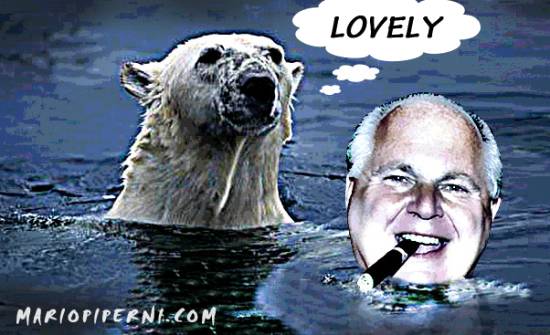ClimateGate III: The Mystery of the Missing Data
01 Dec 2009 03:54 pm
Over the weekend, I came in for some probably deserved criticism from Clive Crook over my initial, somewhat airy, reaction to ClimateGate. In my defense, he quotes my first post on the topic, not the follow up. That was early innings, and my initial estimation of the emails that got the most press at the beginning--particularly the "trick" email--hasn't changed all that much. Sexing up a graph is a bad thing. But the world is not going to plunge off a cliff because of one overdone graph. I've become considerably more concerned at items that have subsequently gotten more attention.
Clive says:
Megan McArdle adopts a world-weary tone similar to The Economist's: this is how science is done in the real world. If I were a scientist, I would resent that. She has criticised the emails and the IPCC response to them, then says she still believes the consensus view on climate change. Well, that was my position at the end of last week, and I suppose it still is. But how do I defend it? There is far more of a problem here for the consensus view than Megan and ordinarily reliable commentators like The Economist acknowledge. I am not a climate scientist. In the end I have to trust the experts. That is what we are asked to do. "Trust us, we're scientists".
He is right: this is not how science should be done. Bullying, groupthink, and bad behavior take place, even by scientists who are right--but that is not to say that I approve of it. And I confess, some of the revelations are making it harder for me to trust this group of scientists about the magnitude of the change, even though I am still pretty confident about the direction.
They apparently tried to organize a deletion of files in order to avoid an FOI request. This is horrifying, and I simply cannot understand why so many of their supporters are willing to downplay it. A couple of sample quotes: "Unfortunately, there are also a couple of messages that suggest an effort to destroy emails that might have been subject to a Freedom of Information request. That's a genuine problem, though it's not clear to me just how big a problem it is. . . . So on a substantive level, there's really very little to this." that's from Kevin Drum, who I greatly respect. More worrying is Real Climate: "Suggestions that FOI-related material be deleted ... are ill-advised even if not carried out. What is and is not responsive and deliverable to an FOI request is however a subject that it is very appropriate to discuss."
Words fail one, reading that latter comment. Ill-advised? Deleting data in order to avoid an official information request is a crime, as is trying to coordinate same, even if you fail in the execution. It's also grossly unethical, and hard to reconcile with any reasonable understanding of science. Moreover, it's the sort of thing that is often done by people who have nasty secrets, so it's hard to pass it off with a blithe, "Oh, dear, now that was a wee bit naughty!"
Imagine reading this email exchange coming from, say, senior officials in the Bush administration. Would any of these bloggers regard this as the ethical equivalent of jaywalking on an empty street?
It's entirely possible that the aspiring self-censors were merely trying to avoid some trivial embarassment, since we have no idea what, if anything, was actually deleted. But
it does not inspire the kind of trust you want to have in people who are advocating massive economic dislocations.
There is strong evidence that
a small group of scientists has inappropriate power over the process of consensus-building. Particularly, they seem to have exercised considerable sway over the peer review process at prominent outlets, while simultaneously deriding their critics because . . . they weren't being published in those peer reviewed journals. As Derek Lowe says, "But while it may have happened somewhere else, that does not make it normal (and especially not desirable) scientific behavior. This is not a standard technique by which our sausage is made over here."
As with the FOI deletions, I find the defenses incredibly underwhelming. They boil down to the fact that these scientists were sick of answering criticisms from people they don't like. And I am actually sympathetic. Corporate groups and conservative interests did put a lot of money into battling any evidence of anthropogenic global warming, for reasons that had very little to with a committment to solid science. Having gone more than a few rounds with critics like this, I heartily empathize with the weariness.
But unfortunately, having people you don't like crawl all over your work looking for errors is, er, science. When I come across scientists who don't get that, well, my trust in their work sort of plummets. Contrast this with something like Steven Levitt's classy response when he was caught in coding errors.
It is not clear to me that CRU can now reproduce their own data set...





